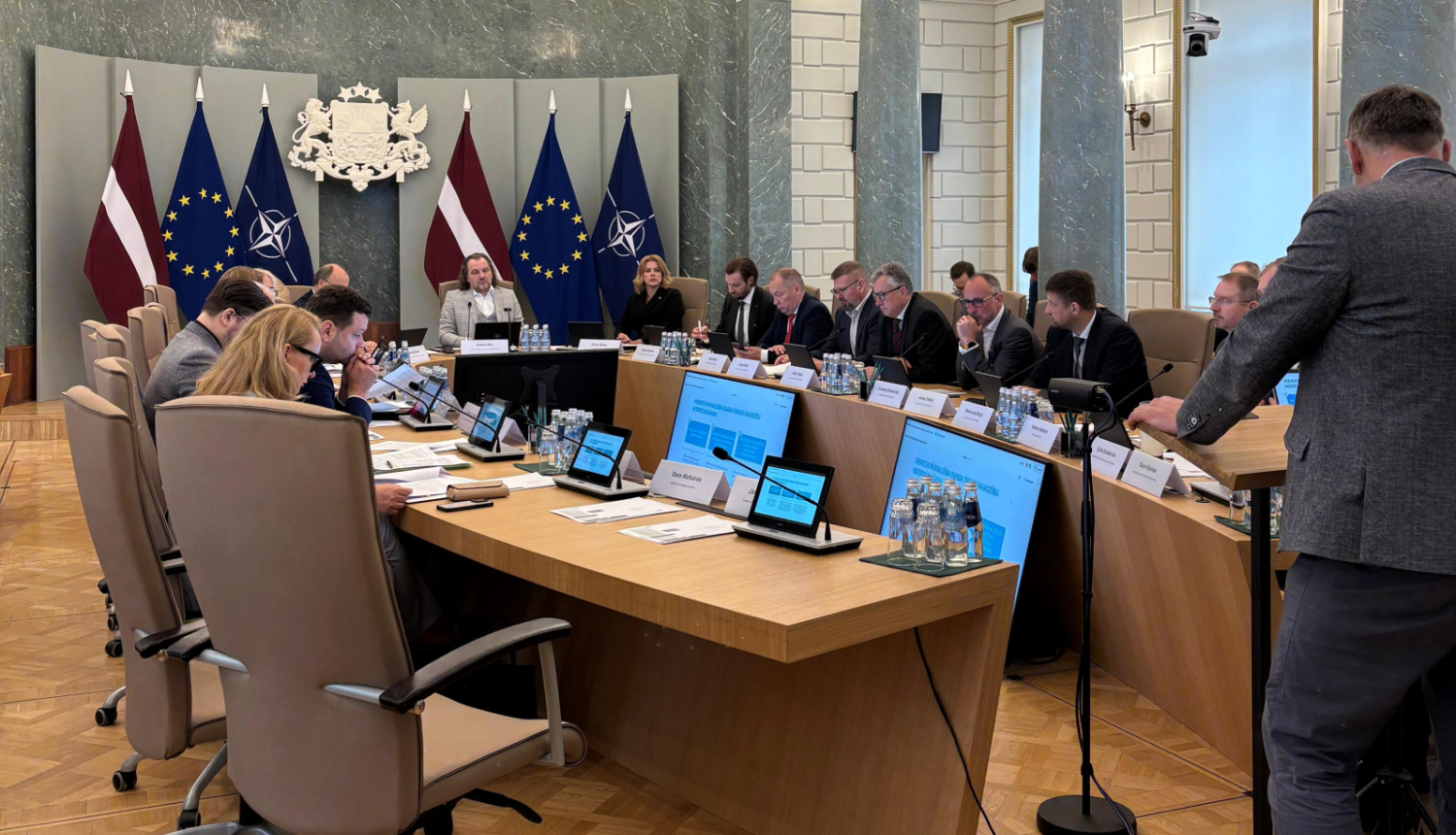Translated using ChatGPT service.
On Thursday, June 12, a meeting of the National Tripartite Cooperation Council (NTSP) took place, during which the Ministry of Economics (MoE), the Ministry of Welfare (MoW), and the Ministry of Education and Science (MoES) agreed on a unified human capital management model to meet labor market needs.
It was also decided to supplement the Human Capital Development Action Plan for 2025–2027 with additional measures, and an agreement was reached to submit amendments to the Labor Law to the Cabinet in the near future. These amendments aim to create a more flexible labor market, facilitating the movement of employees to jobs offering more competitive wages.
“It is important for me to make decisions that lay a stable foundation for Latvia's future – less bureaucracy, more efficient governance without unnecessary duplication, and support for every person throughout their working life. The individual is at the center. Everyone who enters the support system must receive not just advice, but a real path to employment. We are working with employers and trade unions to create a people-centered system. A modern, knowledge-based economy is essential for Latvia,” emphasized Prime Minister Evika Siliņa.
Regarding adult education, the MoE undertook to define labor market forecasts and needs in cooperation with employers and industries; the MoES will ensure the implementation of adult education policy, including the development of curricula, creation of training offers, and establishment of a catalog of educational providers; and the MoW will identify and engage target groups using educational and career support offers.
Coordinated action, with each ministry carrying out specific tasks, will ensure a clear division of responsibilities, avoid duplication of functions, promote a systemic approach to the implementation of national strategic development needs, and ensure efficient resource use.
At the meeting, the MoE reported on progress in the development and accessibility of human capital and presented proposals to update the Human Capital Development Action Plan for 2025–2027. It was decided to include new measures in the plan, such as assigning greater responsibility to municipal education administrations within a unified support system for teachers, developing a funding model to attract new and motivated educators, and prioritizing in vocational education institutions the training of professionals in high demand in the labor market. All current human capital issues are reviewed by the Human Capital Development Council, which also includes representatives from the Employers’ Confederation of Latvia and the Free Trade Union Confederation of Latvia.
"Important decisions were made at the meeting that will affect almost every member of society – both young people on their way to a future profession, adults already in the labor market, and those currently seeking employment. We must ensure targeted investment in human capital, promote business competitiveness, and strengthen labor market flexibility. Our task is to ensure that every person finds their place in an economy where productivity and innovation are the cornerstones of growth. We will work to build a national economy based on educated and knowledgeable professionals who are appropriately valued and motivated,” said Minister of Economics Viktors Valainis.
The MoE also reported on measures to boost the country’s competitiveness. The Minister stressed that the goal defined in the Growth Strategy – to double the size of Latvia’s economy by 2035 – remains in place. To achieve this, an average annual economic growth rate of 4–5% must be maintained, at least 900,000 people must be employed, the share of exports must rise to at least 80% of GDP, and the annual volume of investment must reach at least 25% of GDP. Productivity-driven growth over the next 10 years could raise the average gross monthly wage to €3,200.
To make Latvia a competitive and resilient player in the global market, growth must be based on five strategic directions – defense, sustainable energy policy, capital market development, regional development, and modern governance. The rental housing market must be developed, quality infrastructure must be ensured, and export volumes must increase. Among the MoE’s priorities are also the swift adoption of business-critical decisions regarding EU funds and ALTUM-financed projects, reuse of data, and the reduction of administrative burdens.
The NTSP is a cooperation format that coordinates and organizes tripartite social dialogue between employer organizations, state institutions, and trade unions to align their interests on social and economic issues. It is composed of representatives appointed by the government, the Employers’ Confederation of Latvia, and the Free Trade Union Confederation of Latvia. NTSP meetings are convened by the Prime Minister as needed.



